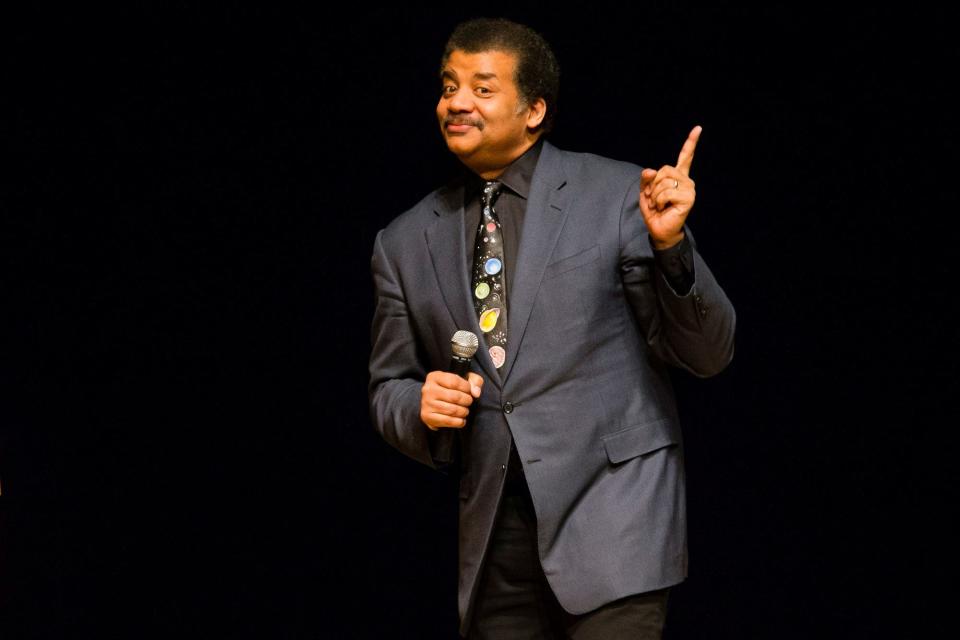Renowned astrophysicist Neil deGrasse Tyson to speak at Converse. Here's how to get tickets.
- Oops!Something went wrong.Please try again later.
Renowned author and astrophysicist Neil DeGrasse Tyson will visit Spartanburg on Sept. 27 for an appearance at Converse University’s Twichell Auditorium.
Tyson’s appearance is part of a tour promoting the release of his latest book, Starry Messenger: Cosmic Perspectives on Civilization, and is presented by Hub City Bookshop.
The book, which will be released on Sept. 20, is “a wake-up call to civilization,” Tyson says, calling for science, exploration and rational thought to be paths to a better life on Earth and a potential antidote to deep divisions over war, politics, religion, truth, beauty, gender and race.
Dr. Will Case, a Professor of Chemistry and biomedical researcher at Converse, will join Tyson on stage for a conversation as part of the event, which begins at 7 p.m.
Tickets are available through the Converse ticket office. Priced at $40, $50 and $60, they include a signed copy of Tyson’s book. There are also $30 student tickets available.

Tyson has been the director of the Hayden Planetarium at the American Museum of Natural History in New York City since 1996. He is well-known fo his work on television, radio and more recently, podcasting.
A space tarantula?: Stunning, star-forming nebula captured by NASA's James Webb Telescope
He has been the host of programs like Nova Science Now, The Universe and Cosmos: A Space-Time Odyssey, as well a frequent guest on news programs and late-night talk shows. His podcast StarTalk has been nominated for multiple Emmy awards.
The title Starry Messenger is a reference to Galileo Galilei’s work Sidereus Nuncius (“starry messenger” in Latin) which was written four centuries ago, based on his then-revolutionary observations of the heavens through his telescope. Galileo's writings challenged scientific and societal orthodoxy and got him in trouble with political and religious leaders of the time.
Tyson says that the controversy, disbelief and animosity spawned by Galileo has parallels in today’s efforts at denying science.
“Objective truths of science are not founded in belief systems. They are not established by the authority of leaders or the power of persuasion. ... To deny objective truths is to be scientifically illiterate, not to be ideologically principled,” he writes.
Chuck Milteer is the editor of Spartanburg Magazine.
This article originally appeared on Herald-Journal: Neil Tyson, acclaimed science communicator, coming to Converse

